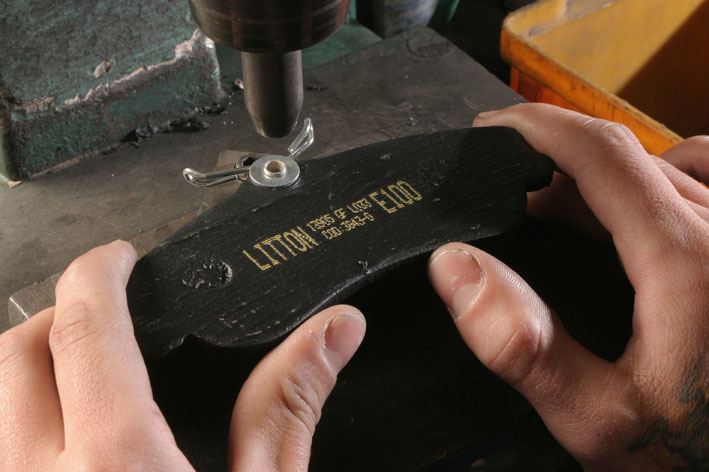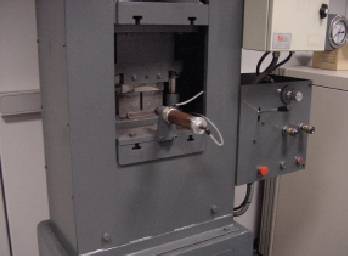Laboratory
Laboratory Quality Assurance Policy
There are two key steps to final approval toward a new product launch:
- A high temperature wear test.
- A noise test (squeal) to achieve a silent braking and therefore more comfortable.
The indicator that differentiates our products as superior to the rest of the market is closely linked to the constant research and development processes that allow us to have a stable product at all levels of demand.
LITTON's philosophy, in terms of research and development, aims to meet the highest expectations of users, starting from safety, to the comfort of braking. Our work constantly pursues goals that go a step beyond the usual within the friction industry.
LITTON brake pads, undisputed market leaders for the last 15 years, are famous for their efficient braking, low wear and extreme care of the brake disc, far surpassing the rest of the products available in our market.

Inertia Dynamometer
Before carrying out the road test (city and highway driving), tests are carried out and the new friction materials are evaluated through dynamic tests, our equipment has high-tech emulation software, allowing to obtain representative results in different situations braking.
The quality of our friction materials is monitored daily, with this modern equipment that simulates all real conditions of use and is connected to a computerized dashboard where the results are collected and analyzed.
More than 100 different tests are carried out to ensure the best performance of the product in any circumstance. This type of test is within those specified in regulation 90 of the United Nations.

C.H.A.S.E.
Equipment for the measurement of the friction coefficient, under international standards, mandatory in the Argentine Republic. This is the only equipment that can be used to homologate CHAS, in force in our country since 2001.

Compressibility
This specific test is carried out to verify that the mechanical characteristics of the friction material are within certain reference values, in terms of its compressibility (pedal stroke) and its mechanical resistance characteristics.
Using a specific testing device, according to international standards, the value of the hot and cold tablet is checked. Compressibility is an important characteristic of friction material, as it must be compressible to obtain a good adaptation to the brake disc, this compressibility must also be able to absorb vibrations.
Very high hot compressibility could lead to severe brake fluid displacement and could then result in exhaustion of pedal stroke and consequent loss of vehicle control, which could suddenly suffer from its stopping power.

Shear Test
The shear force is the resistance presented by the friction material to be separated from the support when a tangential force acts on it. This variable is extremely important because the pads when braking are subjected not only to the normal forces against the disc but also to large tangential forces that are those made by the disc when trying to drag the pads in the direction of rotation.
With a special device, according to specific standards, the resistance of the material to be detached from the metal support is measured by means of a tangential force to both surfaces.
For these characteristics to be met, manufacturers take corrective measures to achieve the best adherence between the support and the friction material, using a different adhesive and studying its relationship with the friction material. It is essential that these tests be carried out constantly and periodically, to detect any non-conformity.
LITTON, in its science friction laboratory, performs this and other tests daily to ensure their quality.
That is why tests carried out outside the production plant are of very little use in order to guarantee quality. These tests must be carried out periodically to be truly useful and therefore valid.

Road Test
LITTON has formed a test fleet of about 50 vehicles, some of its own and others contracted, where we constantly carry out specific tests in different areas of the country, continuously monitoring the behavior of friction materials that have already been approved by our laboratory. physical.

Chemical Research and Testing
LITTON has implemented a specific control method for each of the materials used, before its application in the final formulation of the product.
From the technical support of its laboratory, LITTON ensures its leadership in the Argentine and South American replacement market, thus projecting itself towards new markets in the future.
Our concept applied from the chemical area is: only the best materials, always. The main objectives to be fulfilled by this area, fundamental in our organization, are to ensure quality and audit the processes of our suppliers, in order to maintain our quality control requirements, which allows us to continue providing the total reliability of our products. .
The chemical area analyzes and approves or rejects raw materials for the production process, constantly identifying and developing new suppliers.
